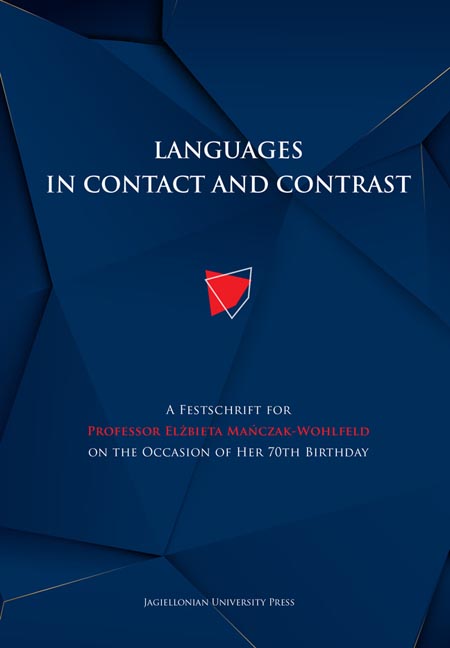 Languages in Contact and Contrast
Languages in Contact and Contrast Published online by Cambridge University Press: 14 October 2023
Introduction
In degree approaches to gradability (cf., e.g., Kennedy and McNally 2005), adjectives associated with an unbounded scale lacking a maximum endpoint resist modification by maximality degree adverbs, such as completely, fully and 100%, which reference the scalar maximum degree (cf. 1). Adjectives associated with bounded scales can be easily modified by maximizers (cf. 2).
(1) a. Her brother is completely ??tall/??short.
b. The pond is 100% ??deep/??shallow.
c. Max is fully ??eager/??uneager to help.
(2) a. We are fully certain.
b. This product is 100% pure.
c. The figure was completely visible/invisible. (Kennedy and McNally 2005: 355)
Also gradable verbs are distinguished into bounded and unbounded depending on whether they are compatible with a maximizer (Hay et al. 1999; cf. also Piñón 2005; Katz 2008; Kennedy and Levin 2008; Beltrama 2018). In contrast to like, the verb depend is bounded, as shown in (3).
(3) a. ??Steve likes Mary completely.
b. Steve depends on Mary completely. (Katz 2008: 242)
However, a maximizer is not always inconsistent with an unbounded predicate. Apart from the property scale, the scale for interpreting a gradable predicate can be determined by the argument to which the gradable predicate applies. In (4), where completely modification is upper bound-oriented, the maximal value is not determined by the property scale lexicalized by the adjective hot, as the scale of temperature is not closed at the top, but by the extent scale of the adjective’s argument. Completely modification is not available in (4a), where the adjective’s argument outside is not (clearly) bounded, but it is possible in (4b), in which hot applies to the maximal expression face. Completely modifying hot in (4b) gives rise to the interpretation that all of the baby’s face is hot and not to the interpretation that the baby’s face is maximally hot, i.e. that it could not be any hotter (cf. Kennedy and McNally 2005: 366).
(4) a. ??Outside it’s completely hot.
b. The baby’s face is completely hot. (Kennedy and McNally 2005: 366)
maximality adverb can also be compatible with an open-scale expression if the scale can be re-interpreted as bounded in context.
To save this book to your Kindle, first ensure [email protected] is added to your Approved Personal Document E-mail List under your Personal Document Settings on the Manage Your Content and Devices page of your Amazon account. Then enter the ‘name’ part of your Kindle email address below. Find out more about saving to your Kindle.
Note you can select to save to either the @free.kindle.com or @kindle.com variations. ‘@free.kindle.com’ emails are free but can only be saved to your device when it is connected to wi-fi. ‘@kindle.com’ emails can be delivered even when you are not connected to wi-fi, but note that service fees apply.
Find out more about the Kindle Personal Document Service.
To save content items to your account, please confirm that you agree to abide by our usage policies. If this is the first time you use this feature, you will be asked to authorise Cambridge Core to connect with your account. Find out more about saving content to Dropbox.
To save content items to your account, please confirm that you agree to abide by our usage policies. If this is the first time you use this feature, you will be asked to authorise Cambridge Core to connect with your account. Find out more about saving content to Google Drive.